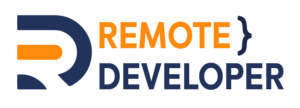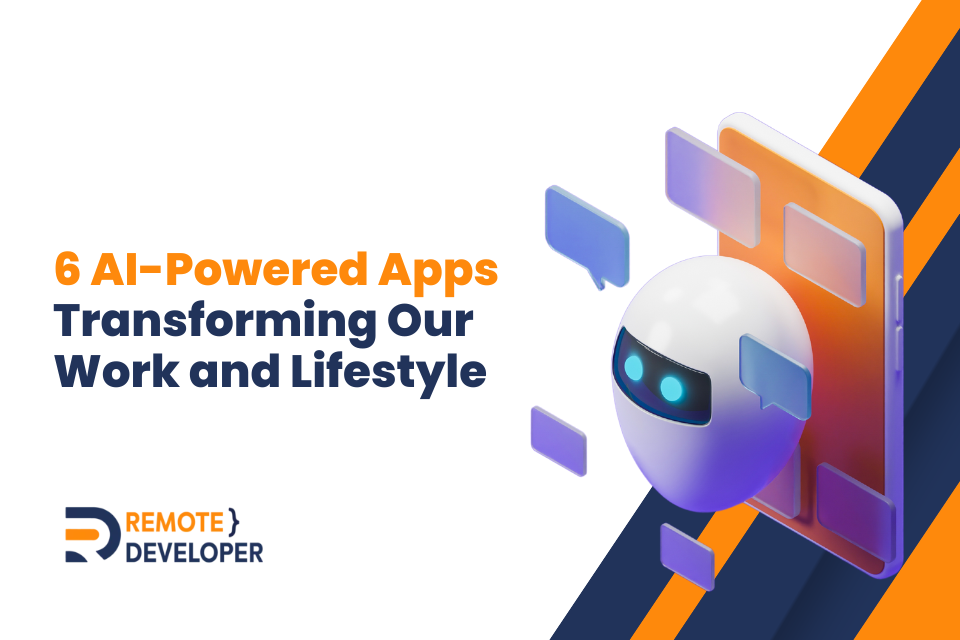Artificial intelligence, or AI, has recently dominated the world of technology and the internet. It has emerged as a transformative force, revolutionising the way we work, live, and communicate with one another. It has helped us finish errands faster, make work easier, and produced opportunities for everyone.
I myself, as a writer, have experienced the life-changing benefits of AI in my daily life. As we witness AI continue advancing, it is undeniable that AI will be part of our everyday reality. So, in this article, I will explore six remarkable AI-powered applications that are reshaping our work and lifestyle, demonstrating the profound impact of AI on our daily lives.
What are AI-Powered Apps?
Before discussing how AI-powered apps transformed life and work, I would first discuss what it is. AI-powered apps are software applications that leverage artificial intelligence technologies to enhance their functionality and provide advanced capabilities to users.
AI-powered apps are abundant more today. You are probably using one without realising it. Some apps like remote tools, virtual assistants, language translators, chatbots, and navigation are powered mainly by AI. Examples are Siri, ChatGPT, Google Translate, Waze, etc.
These apps use AI algorithms and machine learning techniques to process and analyse data, make decisions, and adapt to user behaviour, creating a more intelligent and responsive user experience.
What is the Role of AI in Transforming Daily Life?
As mentioned earlier, AI has transformed our society and reshaped various aspects of our daily lives. From the moment we wake up to when we go to bed, Artificial Intelligence Applications are present in numerous ways. These apps have affected our lives in a more efficient and convenient.
One of the critical roles of AI in transforming daily life is through automation. AI-powered systems and devices can perform tasks previously done manually by humans. This not only saves time but also enhances accuracy and reduces errors. Whether it’s automated home appliances or self-driving cars, AI has revolutionised how we interact with technology.
Furthermore, AI brings personalisation to a whole new level. With advanced algorithms and machine learning capabilities, AI can analyse vast amounts of data to understand individual preferences and tailor experiences accordingly. From personalised recommendations on streaming platforms to customised shopping suggestions based on browsing history, AI ensures that our daily interactions with technology are explicitly tailored to us.
What is the Impact of AI on the Workplace?
In recent years, the impact of AI on the workplace has been undeniable. It experienced a profound transformation with the integration of AI. In one instance, AI-powered apps streamlined workflows and increased productivity. For example, in customer service, AI-powered chatbots can handle routine inquiries, allowing human agents to tackle more complex issues.
Likewise, once time-consuming, and repetitive tasks can now be automated through AI-powered systems. This allows employees to focus more strategically and creatively on their job roles. Businesses can achieve higher efficiency and productivity by reducing manual labour and streamlining processes.
AI also has the potential to enhance collaboration within teams by providing valuable insights and data-driven recommendations. With access to vast amounts of information, AI systems can assist in decision-making processes by analysing data trends and patterns.
6 Game-Changing AI Applications That Transformed Our Life and Workplace

Voice Assistants
Voice assistants have emerged as one of the most pervasive and transformative AI-powered apps, changing the way we interact with technology. From Siri to Google Assistant and Amazon’s Alexa, these virtual companions have become integral to our daily routines.
Voice assistants use Natural Language Processing (NLP) algorithms to understand and respond to human speech, making interactions more intuitive and user-friendly. In the workplace, voice assistants streamline tasks, allowing users to send emails, schedule meetings, and access information through simple voice commands. This enhances efficiency and reduces the need for manual input, freeing up time for more complex and creative tasks.
The continuous improvement of voice recognition technology and the integration of voice assistants into various devices demonstrate their potential to revolutionise further how we interact with technology, personally and professionally.
Recommendation Systems and Algorithms
Recommendation systems and algorithms have transformed how we discover content and products online. Whether it’s Netflix suggesting movies, Amazon recommending products, or Spotify curating playlists, AI-powered recommendation engines are crucial in personalising our digital experiences.
These AI-powered apps analyse user behaviour, preferences, and historical data to predict and suggest items that align with individual tastes. In the workplace, recommendation algorithms assist in content discovery, presenting relevant documents, articles, or resources based on user profiles and past interactions. This enhances productivity and ensures that users receive information tailored to their needs.
The success of recommendation systems lies in their ability to adapt and evolve, continuously learning from user feedback and updating recommendations in real time. As AI algorithms become more sophisticated, the potential for personalised and targeted recommendations in various domains continues to expand.
Chatbots
Chatbots have become indispensable in transforming customer support and engagement across various industries. These AI-powered apps use NLP to understand and respond to user inquiries, providing instant and efficient customer service.
In the workplace, chatbots handle routine queries, assist with onboarding processes, and streamline internal communication. The ability to operate 24/7 without fatigue makes chatbots a valuable asset in enhancing customer experiences and employee productivity.
Moreover, chatbots can be trained to handle increasingly complex interactions, offering a personalised touch to customer service. Their integration with other AI technologies, such as recommendation systems, allows for more sophisticated and context-aware responses, further improving user satisfaction.
However, as chatbots become more prevalent, ethical considerations, transparency, and maintaining a balance between human and automated interactions remain essential to address.
Autonomous Vehicles
Autonomous vehicles represent a ground-breaking application of AI that has the potential to revolutionise transportation and logistics. Companies like Tesla, Waymo, and Uber are at the forefront of developing self-driving cars and trucks.
AI technologies, including computer vision, sensor fusion, and machine learning, enable these vehicles to navigate complex environments and make real-time decisions. The implications of autonomous vehicles extend beyond personal convenience, impacting industries such as transportation, delivery services, and logistics.
In the workplace, autonomous vehicles have the potential to optimise supply chain management, reduce transportation costs, and improve overall efficiency. However, challenges related to regulatory frameworks, safety concerns, and societal acceptance must be addressed for widespread adoption.
The evolution of autonomous vehicles underscores the transformative power of AI in reshaping traditional industries and opening up new possibilities for the future of transportation.
Medical Diagnosis
AI-powered apps have made significant strides in healthcare, particularly in medical diagnosis. Machine learning algorithms analyse vast datasets, including patient records and medical images, to assist healthcare professionals in diagnosing diseases and planning treatment strategies.
In medical imaging, AI algorithms exhibit remarkable accuracy in detecting abnormalities in X-rays, MRIs, and CT scans. This expedites the diagnostic process and contributes to early detection and intervention, ultimately improving patient outcomes.
Personalised medicine is another area where AI is making a profound impact. By analysing genetic data and patient histories, AI algorithms can tailor treatment plans to individual patients, maximising efficacy while minimising potential side effects.
While the integration of AI in healthcare holds immense promise, ethical considerations, data privacy, and regulatory frameworks must be carefully navigated to ensure the responsible and secure implementation of these technologies.
Natural Language Processing (NLP)
Natural Language Processing (NLP) is a branch of AI that focuses on enabling computers to understand, interpret, and generate human language. This technology has given rise to various applications, from voice assistants to language translation and sentiment analysis.
In the workplace, NLP is employed in various ways, including document summarisation, sentiment analysis in customer feedback, and language translation for global communication. The ability of NLP algorithms to comprehend context, tone, and intent makes them valuable tools for enhancing communication and decision-making processes.
As NLP advances, the potential for more sophisticated language understanding and generation opens up new avenues for innovation in both personal and professional contexts. However, addressing challenges related to bias in language models and ensuring inclusivity in language processing applications is essential for responsible and ethical deployment.
Conclusion
The six AI applications discussed represent a transformative wave that has swept our lives and workplaces. These applications have increased efficiency and productivity and opened up new possibilities for innovation and growth.
However, as we continue to witness the evolution of AI technologies, it is crucial to address ethical considerations, regulatory frameworks, and societal impacts to ensure AI’s responsible and sustainable integration into our daily lives and professional environments. The ongoing collaboration between technologists, policymakers, and the public will play a vital role in shaping the future of AI and its impact on society.
Still, don’t let these issues prevent you from experiencing these technologies. Discover these transformative AI-powered apps and integrate innovation into your daily life and work! Learn more at Remote Developer!

